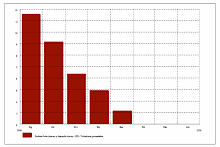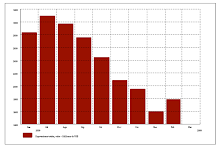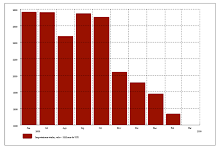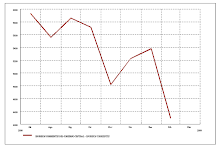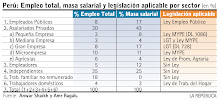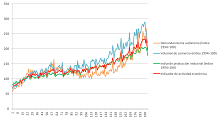Here is what we know about the global economy given the experiences of the past four years:
- There is a global insufficiency of demand relative to the immense oversupply of labor and productive capacity.
- The imbalances between high-wage/current-account-deficit/balance-sheet-indebted nations and lower-wage, surplus nations have produced a glut of savings in the latter, relative to the opportunities offered for profitable investment of those savings in additional capacity, either at home or abroad, given the absence of demand for such additional capacity.
- The excess savings have inexorably reduced the cost of money in the developed world to the historically low levels we again achieved this week. The sole exception to this phenomenon being in the peripheral regions of the Eurozone, owing to the perverse and economically unnatural condition of their being caught in a currency union absent a fiscal union and internal credit support (a subject of many earlier posts on this blog).
- The private sector debt overhang in the advanced deficit economies (including, for this purpose, the portion of the sovereign debts of those countries that was taken on to subsidize internal welfare systems in lieu of, or in addition to, households taking on debt directly) is preventing the recovery of internal demand. Moreover, as the great Irving Fisher wrote during the Great Depression, the very act of attempting to reduce debt has once again ignited the paradox of reduced economic activity, employment and income causing consumers to become even more debt-dependent. Quoting Fisher: "The more debtors pay, the more they owe." We saw this materialize vividly during the second quarter as aggregate consumer debt zoomed past its bubble era highs.
- We are enduring the unfortunate coincidence of the two foregoing phenomenon coincident with a generational (as in, once-in-a-generation) new technological plateau that appears to find an ever expanding number of labor-saving, productivity-increasing, job-obsoleting applications; and
- The developed world has achieved population demographics that force us to confront painful intergenerational economic issues—amidst the historic levels of economic insecurity that impact younger generations as a result of the foregoing issues.
I will hereafter refer to the above as the "Four Factors"—summarized as follows: (i) exogenous oversupply relative to global demand, (ii) classic Fisher-described debt deflation, (iii) excess technological productivity relative to the availability of global labor, and (iv) inter-generational demographic challenges.
Any one of the above Four Factors has a fairly obvious (at least to those of us observers who enjoy salt water and air in the summers) set of solutions that would no doubt be both appropriate and successful if applied in the absence of the remaining three. The challenge that is confounding all schools of economist—well, not all of them, the "austerian-liquidationists" (who summer by lakes it is said) seem not to be confounded, merely lacking in logical coherence—and the political elements who depend on economists to read the entrails of commerce and provide answers, is the need to address all Four Factors simultaneously (or, if not to address the, at least to consider the impact of each upon the others).
That challenge is not only unmet, it is sadly under-discussed in the context of the Four Factors' impact upon one another. It also poses a confluence of circumstances that are nearly impossible (or at least extraordinarily difficult) to model quantitatively and approach uniquely within any one of the several macro-theoretical constraints.
Putting aside what I view as theories and models discredited as the result of recent events (in part because they assume away the possibility of all, or some, of the Four Factors—to say nothing of generally assuming-away that which is inconvenient), there would seem to be a resistance even among those disciples of John Maynard Keynes, Fisher and one of my favorite practical thinkers, Hyman Minsky, to put aside their own models and start thinking out-of-the-box, as those latter three gentlemen most certainly would were they to have lived to contemplate our present situation.
In defense of many, this is hard stuff. The world has never experienced anything like this. And all of us considering what is to be done are constrained by political realities that seem stacked against any reasonable progress in considering a unified solution. But then again, much of our political dysfunction results from a failure to inform and explain, to those in power and to the broader polity, what we are up against—a failure that extends from the economic intelligentsia's inability to agree on what that is.
For example, New Keynesian macroeconomists, as well as some of their post-Keynesian and Hicksian cousins (yes, I am including Paul Krugman in this category, much as he is to be admired for his outspokenness) have posited that gargantuan additional amounts of monetary expansion will succeed in overcoming the debt deflation. If debt deflation were all we were dealing with—it very well might. It would even take a good shot—albeit a painful one—at addressing the intergenerational imbalances in the advanced economies by making sure that aging savers (who would otherwise prefer to "clip bond coupons") become desperate to make expansionary investments amidst Japanese-style bond yields and panicked fears of inflation.
Yet we now have enough of a post-crisis track record to see that efforts to induce inflation, and efforts to target and forcibly obtain high rates of nominal GDP growth (the hope of all who seek to induce debt-devaluing, and investment-inducing inflation/financial repression—see Christina and David Romer, Kenneth Rogoff, and his collaborator, Carmen Reinhart) are not working.
We are at the zero lower bound of short term interest rates. Long term rates are certainly being manipulated by central banks—but the mass of excess capital floating about with no sensible investment alternatives given the excesses of supply relative to demand, would keep them low anyway. The reason the Japanese experience is applicable to the rest of the developed world is not because of their inescapable recession/deflation—it is because it was the first advanced economy to experience a massive private sector debt overhang contemporaneously with a substantial excess of savings relative to opportunities for domestic investment when the "Asian Tiger" economies began to challenge Japan's manufacturing and export hegemony. Then, as now, savings sought the security of hard currency government debt and reasonable equivalents (excluding, in the present iteration, debt of troubled Eurozone countries without control over their own currency) when there is no reason to finance additional capacity.
In addition to historically low interest rates and a banking/credit system choking on un-lent, and foolish-to-lend, liquidity, we have the subsidizing effect of low interest rates on banks and corporations (and, to a far more limited extent because of the decrepitude of household balance sheets, consumers). We even have, as a result of the household debt crisis and the underwater mortgage crisis, 6.5 million households that are delinquent or in default on their mortgage and essentially living "rent free"—a most insidious form of subsidy.
There is so much cash floating around in the capital markets that money supply long ago ceased to be the metric targeted by the Federal Open Markets Committee of the U.S. Federal Reserve Bank—it is now all about interest rates and I would dare say that with 10 year and 30 year U.S. treasury bonds, at below 1.5% and 2.5% respectively, if nominal GDP can't be made to grow, and inflation to ignite under present circumstances there must be something else going on! Something bigger, even, than the classic liquidity trap in which we are very much caught.
I believe that the so-called "doves" at the Fed realize this as well. Markets may trade on the expectation of further monetary intervention, but the intervene-ors are beginning to conclude that further easing is likely not to be productive—and, worse yet, possibly counterproductive. And with no small irony, this is not because of the typical fears of their inflation-hawk colleagues. Rather it is because we haven't been able to produce much inflation at all, apart from bouts of commodity inflation that correspond with periods of massive easing and each time only succeed in quashing economic activity at the margin, as consumers cannot keep up.
Wages, unfortunately, refuse to track the rise in those prices that are influenced by more liquidity, lower interest rates, and short-lived fears of inflation-that-is-not-to-be. And, yes, that is because there is too little aggregate demand for labor relative to a global surplus thereof.
Critics of this view are many. Some, like Krugman, readily acknowledge that wages are stuck at rigid nominal levels—refusing to grow, but also refusing to fall in the absence of demand. And the truth is that employees aren't given to offering to work for less and employers seldom cut wages—preferring instead to cut workers—so wage rates are, in fact, quite sticky. As I sat down to write this essay, I noted a blog post by Professor Krugman precisely on this point, written within hours of my putting my own thoughts down. In it, Krugman asserts that falling wages would precipitate "destructive deflation" and maintains that while wage cuts couldtheoretically be thought of as expansionary (because such cuts would notionally increase the demand for workers, thus creating jobs and increasing demand) they would exacerbate the debt problem, as households earning less would have a more difficult time deleveraging and between that, and the downward price adjustments that would need to follow wages, we'd be off on the road to Tokyo before long.
But that view ignores other realities. Yes, nominal wages are downwardly rigid and, yes, reduced nominal wages would result in reduced nominal prices before too long. And reduced rents, both real and economic, ultimately reduce asset values that are reflective of the nominal wages and prices. It is hard to argue in the alternative.
Yet it is, as I see it, similarly hard to argue that further monetary expansion will succeed when wages cannot be forced to rise. It is even harder to argue that wages will rise when we are at the zero lower bound of short term interest rates and long term interest rates imply a near-negative rate of future inflation. And it is—in my judgment at least—impossible to argue that wages will rise now that we have been through multiple rounds of unprecedented monetary intervention, with the only result being that we have stabilized the developed economies a few yards short of descending into full-fledged depression.
And it is particularly difficult to ignore that, measured in terms of headline CPI for Q2 2012, for what it's worth statistically (not much unless it continues)—we actually experienced price deflation (March CPI = 229.018, June CPI = 228.618, subject to revision). .
Without going too far into a discussion of the emerging economies, the disinflationary patterns we are seeing in China as growth slows, is particularly alarming. We badly need an overheated Chinese economy to inflate in order to partially offset the supply/wage imbalances and induce cross border currency revaluation to the detriment of the U.S. dollar. Today, the dollar is flying way too high, having risen in recent days to a two year high. Too high to be helpful (indeed, it will soon be the opposite) in addressing trade and current account balances.
If all we were experiencing was a debt deflation, the easing by the Fed, ECB, BOE and BOJ would have actually accomplished something. If that were the case, than central banks would have the ability to force growth in nominal GDP. But, as demonstrated via consideration of the Four Factors, such is not the case. Not even close.
Note that I am not saying that the presence of a global supply glut knocks into the gutter all economic theory that says such a thing can never occur. Markets and economies do of course tend towards Walrasian equilibrium. But I am saying that the magnitude of present imbalances, especially if not properly addressed, would take quite some time to rebalance.
As an analogy, consider that we have, since the Renaissance, generally understood that the earth always turns daily on its axis from west to east. A giant meteor slamming into its surface might alter that rotation with the result that its restoration would take considerable time, during which costs to the residents of the planet would undoubtedly be severe. In the case of global macroeconomics, it was no meteor that hit us. We were hit by a ton of BRICs.
Irving Fisher taught that to prevent a deepening slump amidst a debt deflation we must stabilize economies and then go all-out to reflate them. The monetary authorities in the developed world have engaged in massive coordinated action to stabilize their financial systems and economies to prevent depression (at least so far). But they have not succeeded in being able to reflate the advanced economies—and will not be able to do so through a singular reliance on the blunt instrument of further monetary easing. Fisher would certainly have seen this.
We must move from stabilize and reflate, to stabilize and recalibrate:
- It is time for creditors throughout the developed world to finally take the write downs that have long been coming their way in connection with the trillions of dollars of truly un-payable household and sovereign debts that resulted from the credit bubble of the 2000s. Yes, this will pressure lenders and, yes, they will need to be recapitalized to the detriment of their existing stakeholders. But there is presently no shortage of capital seeking reasonable risk-adjusted returns, and I have every confidence that it will flow eagerly into the financial sector—if only the balance sheets of our institutions were honestly reckoned by having the currently unrecoverable carrying value of assets written down to that which can be recovered today from borrowers and/or underlying collateral.
- As I have been saying and writing about for years, we must accept the reality of what the credit markets are telling the planet's most creditworthy governments, particularly that of the U.S. The message is "please, here, take our money…take it cheaply and keep it safe…we have no fear of lost purchasing power, the trend is not inflationary…now take it (and use it to fix your economy)." And that is what we must do. We must take as much 30-year money at these depression level interest rates as we need to re-employ our underemployed workers directly, on public infrastructure projects that return benefits to the economy more than sufficient to repay the sums borrowed when the time comes. The private sector will not hire until it sees a recovery in demand—so the only agent for re-employment of workers and regeneration of demand may, for an extended time until the imbalances at least decline somewhat, be our governments. It is long past time to pack away austerity agendas.
- And yes, we must address and manage the process of nominal price, wage and asset value declines. The advanced economies are experiencing the effects of a supply glut, a debt overhang, massive technology-induced productivity (soon to transfer to the emerging economies, worsening the glut), and aging populations. These are all disinflationary factors. And the aggregate effect of their contemporaneous existence is deflationary—full stop. Yet in relying on monetary intervention alone we are fighting the battle to control the pace of deflation (forget about reflation) with one hand tied behind our back.n Instead of targeting growth in nominal GDP, which I am proclaiming here to be a futile endeavor, we must target renewed global competitiveness and, at the very least, growth in real GDP. That means both allowing our price and wage structures to align themselves with global supply and demand and, more importantly, feeding and nurturing investment in those areas of the private sector that can employ large numbers of people at market clearing wage rates. Especially in those sectors that are more readily protected by geography from global competition.
I am convinced that if our economic policy had more closely acknowledged and addressed the challenges posed by the Four Factors, we would have made far more progress over the past five years. Let's not waste the next five years ignoring the reality thereof.
![[Most Recent Quotes from www.kitco.com]](http://www.weblinks247.com/indexes/gfms.gif)
![[Most Recent Quotes from www.kitco.com]](http://www.kitconet.com/charts/metals/base/spot-copper-30d.gif)
![[Most Recent Quotes from www.kitco.com]](http://www.kitconet.com/charts/metals/base/zinc-d.gif)
![[Most Recent Quotes from www.kitco.com]](http://www.kitconet.com/charts/metals/base/lead-d.gif)
![[Most Recent Quotes from www.kitco.com]](http://www.kitconet.com/charts/metals/base/spot-nickel-30d.gif)





















